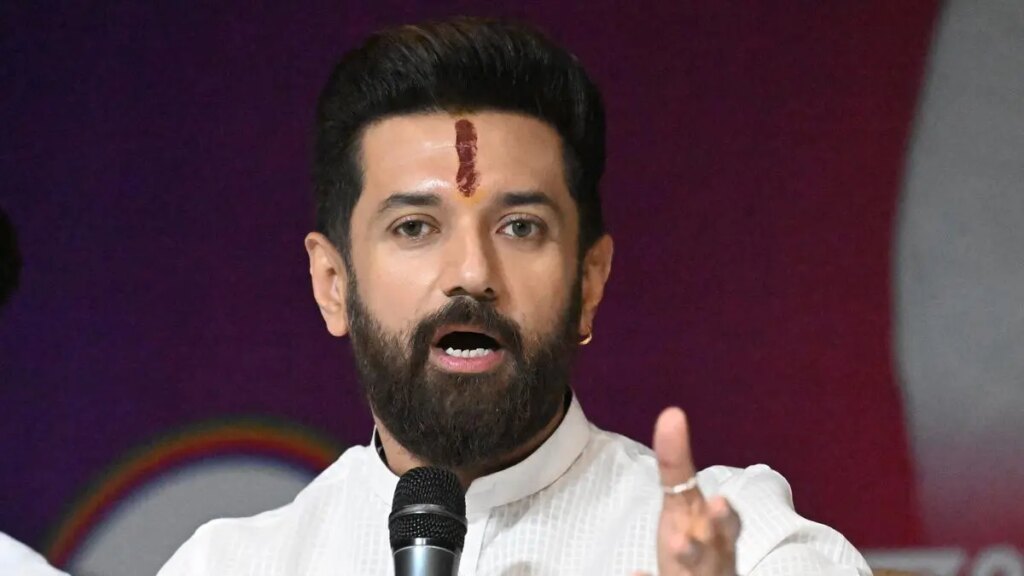Dear readers,
Recently, I heard Chirag Paswan in Patna—amid the pre-election bustle—say that he does not see himself in Central politics forever. He claimed his real reason for joining politics was to “serve” Bihar and its people. Noble. But given the political winds, maybe also convenient.
Chirag, the Bollywood-hopeful-turned-MP, also invoked his “Bihar First, Bihari First” motto, a line with both patriotic cadence and electoral potential. I remember the early 2010s when his father, Ram Vilas Paswan, was tirelessly promoting Chirag’s debut film Miley Naa Miley Hum (2011), a romantic drama co-starring Kangana Ranaut. The film flopped, critics panned it, and audiences ghosted it (but some outliers like my colleague Jinoy Jose P. say they loved the song “Nazar Se Nazar Mile” in the film!).
Years later, Chirag would look back with typical self-awareness: “Even before the country did, I realised I was a disaster. I realised that I wasn’t made for acting.”
But unlike Bollywood, politics did not reject Chirag. In fact, he has scripted a political arc that is far from disastrous. He played a crucial behind-the-scenes role in his father’s pivot from the United Progressive Alliance to the National Democratic Alliance (NDA) before the 2014 election. He has won three Lok Sabha terms, outmanoeuvred his uncle in a bitter succession war after Ram Vilas Paswan’s death, reclaimed control of the Lok Janshakti Party in 2024, and is now a Union Minister in Modi 3.0. Not bad for a failed actor.
The transition from the silver screen to Sansad is not uncommon. We often hear that politics is the last refuge of scoundrels. But more often in India, it is the second act for actors, cricketers, technocrats—and of course, sons and daughters of the netas.
Over the past two decades of political reporting, I have met leaders who insist they don’t want their children to follow them in politics—and others who are dead set on launching a “son rise”. The children may flirt with medicine, engineering, the arts—but more often than not, the call of politics pulls them back, like the proverbial bird at sea that strays from the ship, only to return. No land in sight.
Take Udhayanidhi Stalin. Before he became Tamil Nadu’s Deputy Chief Minister in 2024, he was a film producer and actor. In politics, he has attracted controversy—recall his comment on Sanatan Dharma in 2023 that sparked an uproar (and also votes). Recall how he campaigned holding up a brick and calling it AIIMS Madurai. In five short years, he has risen to the post of Deputy Chief Minister and settled comfortably into his political innings. Mamannan (2023) was his last film. Politics, clearly, is the role he plays best.
In Tamil Nadu, the lines between cinema and politics have always been porous. From MGR, Sivaji Ganesan, and Jayalalithaa to Kamal Haasan and Rajinikanth, the film-to-fort migration is almost a rite of passage. Whether Udhayanidhi can live up to that legacy remains to be seen, but he is no understudy anymore.
Elsewhere, other heirs find themselves reluctantly coronated. I recall Lalu Prasad once telling me, during his Rail Bhavan days in 2009, that Tejashwi was more into cricket and Tej Pratap was devoted to Krishna. Today, both sons are legislators, with Tejashwi having served as Bihar’s Deputy Chief Minister and Tej Pratap still in the Assembly.
Nitish Kumar stood for long on a no-dynasty platform. But as rumours about his fading health (or fading faculties, if you go by the Opposition) swirled, his son Nishant suddenly entered the political chatroom. Nishant, who had stayed out of the limelight for years, began speaking like a seasoned operator, even pitching his father as the NDA’s face for 2025.
Some step in reluctantly only to settle in. Rajiv Gandhi, who once preferred flying planes to fighting elections, became Prime Minister after the assassination of Indira Gandhi. Rahul Gandhi, too, resisted politics for years. Even after joining, his early political experiments were mocked as the play of the babalog, but he has survived.
Then there are the almosts. In 2015, during the Delhi Assembly election, Pratibha Advani, a TV personality and daughter of L.K. Advani, was floated as a possible BJP candidate from Greater Kailash, potentially against Sharmistha Mukherjee, daughter of then-President Pranab Mukherjee. Neither career was launched. Sharmistha contested and lost to the AAP’s Saurabh Bhardwaj and, by 2021, had quit active politics. Pratibha remains on the political periphery.
In Kerala, Anil Antony, son of veteran Congress leader A.K. Antony, first headed the Congress party’s digital cell before defecting to the BJP in April 2023. His candidacy from Pathanamthitta in 2024 ended in a loss, with his father publicly opposing him.
Bansuri Swaraj, daughter of Sushma Swaraj, fared better. She won the New Delhi Lok Sabha seat in 2024 on a BJP ticket. Her political ambitions have long been a matter of speculation, and her name was even floated for Delhi Chief Minister, a post her mother briefly held.
There are, of course, the exceptions. Fashion designer Siddharth Tytler, son of the infamous Jagdish Tytler, once said he wished his father had never entered politics. Poojita, documentary filmmaker and daughter of Renuka Chowdhury, told the media bluntly in 2005 that she had no political ambitions. So far, she has kept that promise. Former Prime Minister Manmohan Singh’s daughters—Amrit (a lawyer), Daman (a novelist), and Upinder (a historian)—have all stayed out of politics.
Politics in India is less a calling, more a gravitational force, a game where the family name is often the first and sometimes the only qualification. Dwight Eisenhower once said that politics should be a part-time profession for every citizen. In India, it is often the full-time occupation of every second-generation hopeful.
Do you believe dynastic politics is bad? Or is it simply the same as dynastic businesses or dynastic gharanas in classical music? Write in with your views.
Until my next newsletter.
Anand Mishra | Political Editor, Frontline
Source:https://frontline.thehindu.com/newsletter/poll-vault-anand-mishra/dynastic-politics-india-chirag-paswan-udhayanidhi-tejashwi/article69664239.ece

